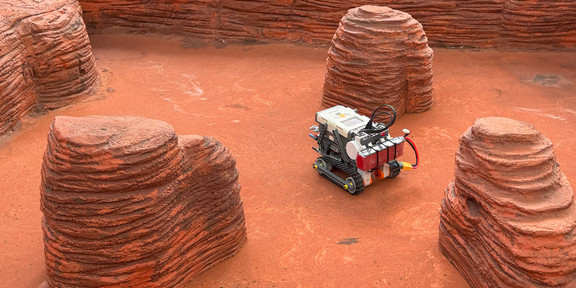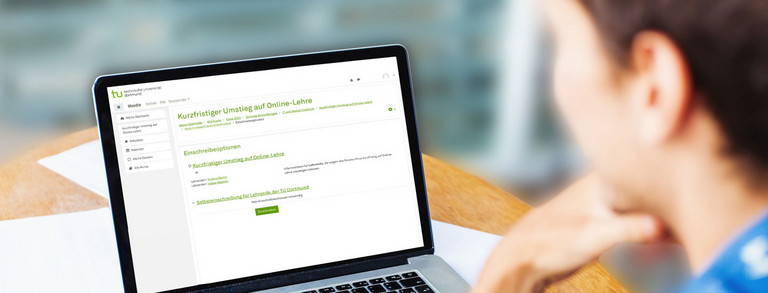Space Logistics Laboratory at TU Dortmund University
- News
- Studium
- Lehrstuhlnews

True to Prof. Henke's motto: "Off to the stars! Logistics knows no boundaries: Space Logistics" [1], our colleague Natalia Straub launched the specialist laboratory and logistics project "The role of space logistics in the space economy" in the summer semester of 2025 in cooperation with the DLR_School_Lab at TU Dortmund University.
In conjunction with aerospace technology, logistics plays a central role in the industrialization of space. Whether it's warehouses in orbit, the relocation of climate-intensive production processes into space or high-tech products "Made in Space" such as electronic components like solar cells, whose crystal structures can be formed with particular precision in microgravity, logistics processing plays a decisive role in the possible future colonization of the solar system.
The aim of space logistics is to maximize the exploration potential of missions. This can be achieved through efficient vehicle utilization and improved payload planning, optimized process design and the intelligent use of infrastructure resources by establishing depots, hubs and refueling stations in space. This involves transferring proven logistics concepts and expertise from Earth to the special requirements and application scenarios in space.
While the logistical aspects of space missions have been intensively researched for years, topics such as extraterrestrial logistics and interplanetary supply chain management are only slowly coming into focus - we want to change this together with our students by analyzing current challenges and concepts of space logistics!
Special thanks go to:
Dr. Sylvia Rückheim for the inspiring lecture "Return to the Moon" - with an exciting overview of the history of space exploration and an outlook on the upcoming ARTEMIS missions.
The team from the DLR_School_Lab at TU Dortmund University for the fascinating experiments that made astrophysical relationships tangible - from the artificial regolith from DLR's Luna Hall to virtual exploration of the ISS using VR glasses.
Axel Schulte from Fraunhofer IML for his in-depth technical input on space logistics during the preparations and
Eva Paulina Ziehm for her active support during the implementation.
And of course a big thank you to all participants for an inspiring teaching experience - we look forward to further exchanges!
[1] DVZ, subscription required







